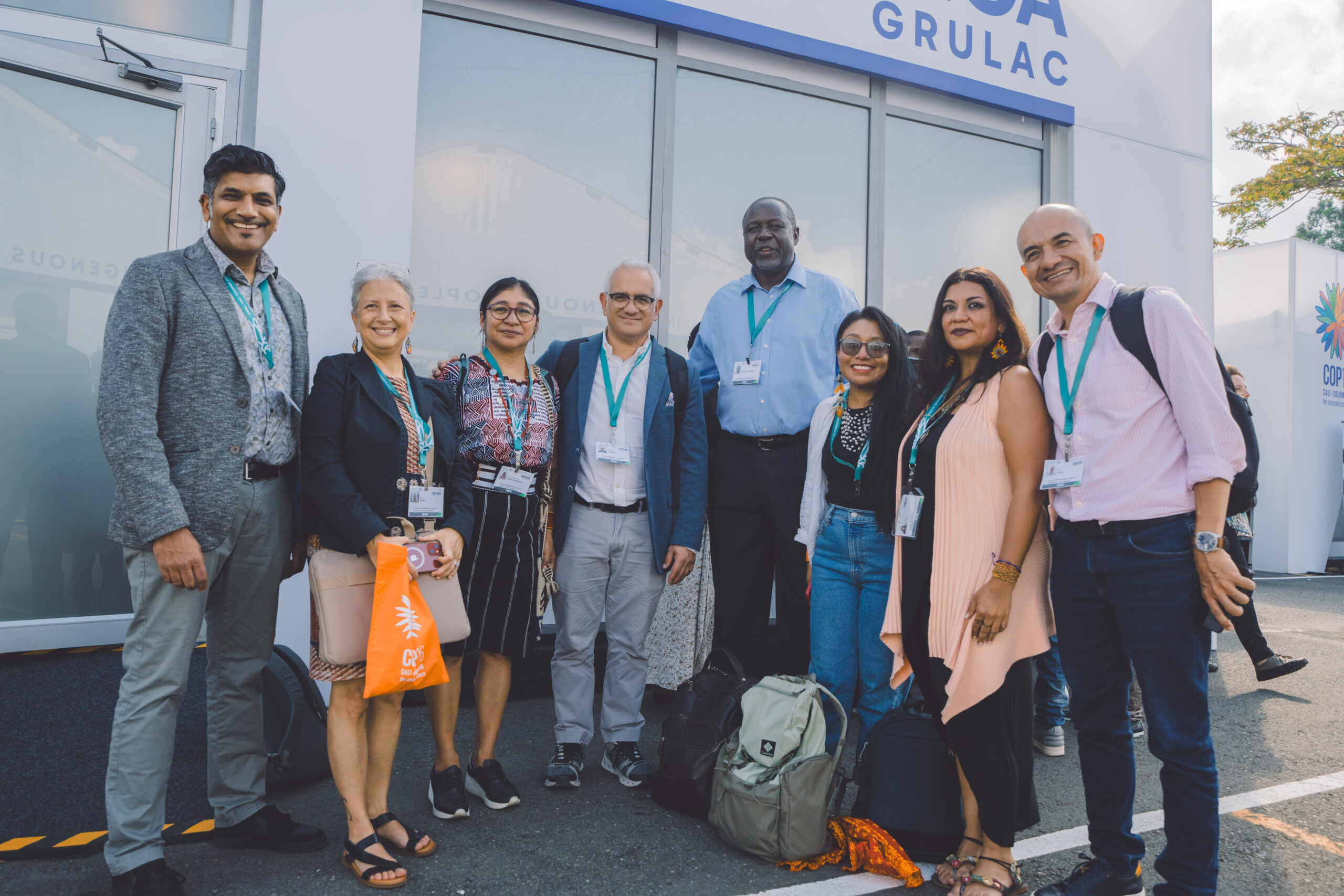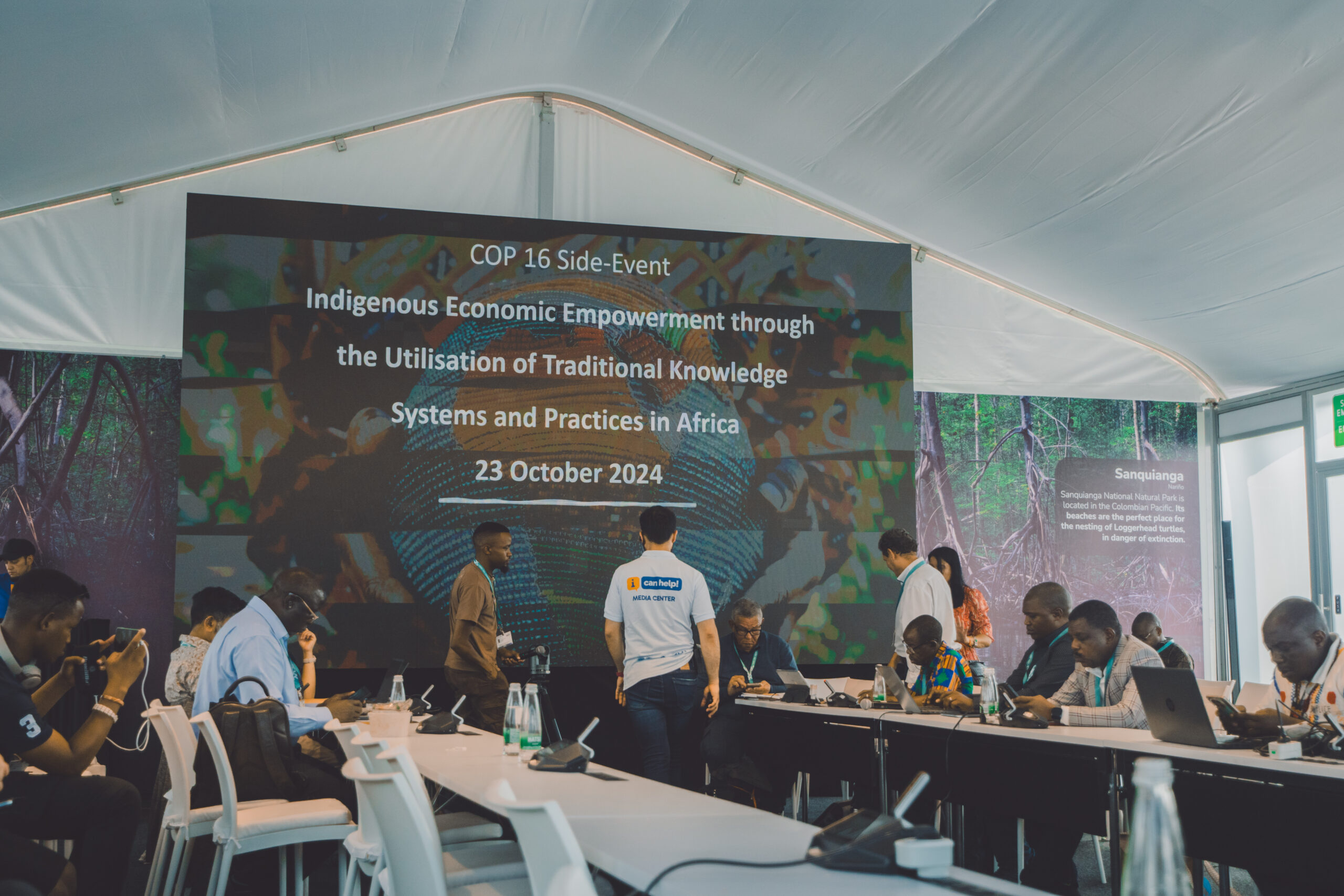A milestone at COP16: Global recognition of Indigenous rights and their role in the protection of biodiversity
The creation of the Permanent Subsidiary Body on Article 8j and international partnerships pave the way for an active participation of Indigenous Peoples at COP30 in Brazil in 2025

The historic decision at COP16: Indigenous Peoples get a Permanent Subsidiary Body on Traditional Knowledge
The recent UN COP16 marked a milestone for Indigenous Peoples by establishing a Permanent Subsidiary Body on Article 8j, which gives them an official voice in global conservation policies. After intense negotiations, the agreement was announced by Colombia’s Minister of Environment, representing a historic recognition of Indigenous knowledge systems and their profound relationship with nature. This breakthrough validates the ancestral wisdom of Indigenous communities in the protection of biodiversity and underscores their essential role in caring for the planet.
The creation of the Permanent Subsidiary Body on Article 8J represents a historic step forward for Indigenous Peoples, whose recognition goes beyond symbolism; it is a true inclusion in global decision-making on biodiversity.
In this achievement, the G9 of the Indigenous Amazon, an alliance of nine organizations of Indigenous Peoples of the Amazon, was fundamental, standing out at COP16 as a strategic actor.
Amazonian Indigenous Organizations form an alliance; G9
In their statement, they highlighted their ancestral role as guardians of the forests, warning that any dialogue on biodiversity and climate is meaningless without their participation. Faced with threats such as illegal mining and deforestation, they urged states to protect their territories and recognize their rights, requesting direct funding and participation in global policies. Their efforts contributed to the creation of the Permanent Subsidiary Body on Article 8J, a key achievement for their inclusion in global decision-making, and laid the groundwork for them to play a key role towards COP30 in Brazil in 2025.
Partnerships for Indigenous Peoples’ rights, economies and ecosystems in Africa
Highlights at COP16:
- The FSC Indigenous Foundation and REPALEAC signed an agreement to strengthen initiatives with Indigenous Peoples in the Congo Basin, focusing on the defense of their rights, economic empowerment and sustainable management of forest ecosystems in Central Africa. This partnership with REPALEAC seeks to enhance the capacities of Indigenous organizations through participatory training and promote their participation in decision-making on natural resources, climate policy and biodiversity.
- The FSC Indigenous Foundation signed an agreement with the Ogiek People’s Development Program (OPDP) to strengthen its collaboration with this community and protect the Mau Forest, a place of vital cultural and environmental importance to the Ogiek. This alliance seeks to empower Ogiek women and foster an inclusive dialogue by promoting policies that respect their rights and ancestral knowledge of biodiversity.
- The FSC Indigenous Foundation has expanded its collaboration with the Indigenous Peoples of Africa Coordinating Committee (IPACC), the world’s largest Indigenous Peoples’ network, which brings together 135 organizations in 21 African countries. This alliance seeks to promote the defense of the rights, recognition and economic opportunities of Indigenous communities in the management of their lands, in addition to promoting economic activities based on their worldview and traditional knowledge.

These initiatives ensure that Indigenous communities actively participate in decision-making about their lands and resources, as highlighted by leaders such as Nadia Gómez and Maatal Pérez during COP16. The testimonies of these leaders invite us to reflect on the urgency of recognizing the importance of Indigenous participation in the preservation of biodiversity.
Voices from COP16: Listen to our delegation and Indigenous leaders:
- Mohamed Handaine – Indigenous knowledge for biodiversity management:
- “If we take the Sahel as an example, we have a water shortage, so the Indigenous Peoples have created extraordinary systems to manage this water shortage.”
- Yaily Castillo – Indigenous Youth and Leadership:
- COP16 serves as a space for Indigenous youth from Latin America and the Caribbean to connect and collaborate on leadership and participation strategies.
- “We seek to create useful platforms and tools for the youth network that we are promoting at the FSC Indigenous Foundation.”
- Nadia Gómez – Importance of the Participation of Indigenous Peoples:
- COP16 represents a platform for Indigenous youth and veteran leaders to be heard at the global level.
- “Forests and rivers we consider them sources of energy and wisdom and historically, we have been the ones to protect these ecosystems so that today the world enjoys preserved landscapes.”
- Carlos Blandón – Resource Mobilization for Indigenous Peoples:
- The objective at COP16 is to establish partnerships with actors from the public and private sectors and multilateral organizations to implement biodiversity agreements.
- Maatal Perez – Economic Empowerment of Indigenous Peoples:
- We work under the principle of “free, prior and informed consent” before any intervention, which guarantees respect for the autonomy of the communities.
Listen to each of them and discover how their efforts at COP16 open a path of change and hope for all.
COP16 marked a significant advance in the recognition of the rights of Indigenous Peoples, underscoring their fundamental role in the protection of biodiversity and the sustainable management of ecosystems. This momentum towards inclusion and respect for their ancestral knowledge is crucially projected towards COP30 in Brazil in 2025, where the active participation of Indigenous Peoples will be essential to address the global challenges of biodiversity and climate change.
